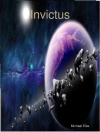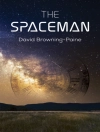In the vivid and expansive anthology ‘Voyage Beyond the Stars, ‘ a panoramic vista unfolds, exploring the many dimensions of human imagination through the prism of outer space. With narratives ranging from audacious exploratory tales to profound examinations of extraterrestrial existence, this collection encapsulates the boundless possibilities of speculative fiction. The anthology offers a curated selection of stories, each a gem in its inventive portrayal of journeys across the cosmos. Among these, standout pieces captivate with their visionary look at humanity’s place in the universe, delivered through an array of literary styles from thrilling adventures to philosophical musings. The anthology proudly features contributions from eminent authors who have sculpted the landscape of science fiction. Pioneers like H. G. Wells and Jules Verne join voices with other luminaries, creating a tapestry rich in historical context and cultural significance. These authors emerged during pivotal movements in literature where the burgeoning curiosity about science and space ignited imaginations. Their varied backgrounds provide a comprehensive lens on the themes of exploration and innovation, offering readers an enriched perspective of this transformative era in literary history. ‘Voyage Beyond the Stars’ is an essential treasure for readers craving a comprehensive engagement with the depths of science fiction. It affords an unprecedented opportunity to traverse myriad worlds and timelines, crafted by some of the genre’s most groundbreaking authors. This anthology not only educates but also inspires by fostering a dialogue between past and present perspectives in speculative fiction. It is a call to voyage beyond the stars and into a deeper understanding of both the universe and the creativity it inspires in humanity.
Sobre o autor
Jules Verne (1828–1905), a French novelist, poet, and playwright, is often hailed as a pioneering figure in the science fiction genre. Born in the seaport of Nantes, Verne developed a fascination with travel and exploration, themes which would later populate his famous ‘Voyages extraordinaires’ series. With a keen interest in science and technology, Verne imagined inventions and adventures that were well ahead of his time, predicting the future with uncanny precision.
His works, characterized by meticulous research and a visionary approach to the potential of science, secured his reputation as a writer who could captivatingly blend scientific fact with adventure. Although ‘Voyage Beyond the Stars’ is not a recognized title in Verne’s bibliography and may be an erroneous reference, he is best known for ‘Twenty Thousand Leagues Under the Sea, ‘ ‘Journey to the Center of the Earth, ‘ and ‘Around the World in Eighty Days.’ These works showcase Verne’s mastery in taking readers to fantastical voyages, while grounding stories with plausible scientific theories.
Verne’s literary style has enthralled readers for over a century, and his influence on both literature and science cannot be overstated. His works continue to be widely read and adapted into numerous media, underscoring his enduring legacy as one of the fathers of science fiction.












